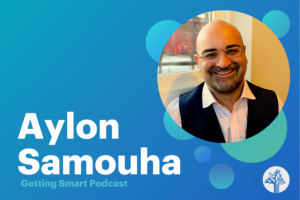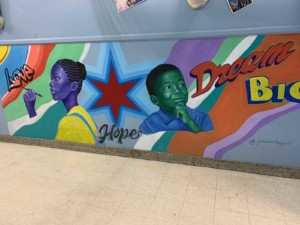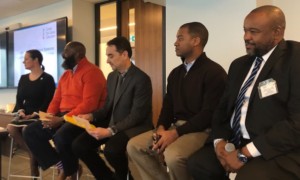Leading Education Foundation Promotes Race Equity, Vows to Fight Racism

Nick Donohue has good instincts. He rose quickly from teaching to become state chief in New Hampshire. When he took over as president at New England’s largest education foundation, he charted a bold course focused on student-centered learning. (Listen to our podcast with Nick.)
Like a couple leading organizations, the Nellie Mae Education Foundation agenda embraced personalized anywhere anytime learning, but also provided unique advancements in student agency and competency-based learning. More than a decade later, the sector is coming around to Donohue’s insights on student-centered learning.
But it’s not like it’s been easy. Most New England schools are still pretty traditional despite the fact that Nellie Mae grantees like Great Schools Partnership helped states update their policies and convinced colleges to accept competency-based diplomas.
Donohue observed that innovations in school districts were moderated by factors of race and class. After a year of community conversations, Donohue announced an updated foundation strategy—and it charts a bold course addressing race inequity.
“While the reasons for educational inequities are many, we must realize that racism in its many renditions—personal, institutional and structural—is part of the problem,” said Donohue.
On the link between the old and new strategy, Donohue said, “We will revisit the definition of student-centered learning to put attention on racial equity outcomes, and increase attention and focus on the cultural, structural, and policies that reinforce inequities within our education system and communities.”
For the last decade, Nellie Mae had pursued student-centered learning as a package of instructional strategies that fit inside a system and guide teacher-student interaction. The new strategy interrogates cultural relevancy and asks educators when organizing personalization to consider student experienced trauma. “Student-centered learning needs to evolve to design for equity,” said Donohue
Race is also a lens to address structures in schools and teacher preparation said Donohue.
One example is that he has seen personalized learning play out as an individual event. But in underserved communities, outcomes are more collective in nature—education is a public good as much as a personal benefit.
The new strategy will change grantmaking. Like most foundations, Nellie Mae signaled intent and people applied—but that was typically the most capable, stable, well-resourced respondents. Going forward, the foundation will reach out to community leaders that represent the most harmed, least heard communities. “We need to listen more and dictate less,” said Donohue.
The change is also likely to shift Grantmaking in New England to more high need communities, “The ones that need it the most, not just the ones ready to do the work,” added Donohue.
The new focus on race-based inequities has been a journey of deep introspection for Donohue, the board, and the staff. More than programmatic changes, he sees it as a mindset shift, a cultural transformation.
A new community advisory board will help foundation leadership hear and respect diverse voices.
As the automation economy accelerates income inequality, it’s good to have a leading education foundation listening to and acting on behalf of the least well served.
For more see:
- Smart Review: Courageous Conversations About Race
- Google’s Jaime Casap on Inequity and Inquiry (podcast)
- The Innovation Inequity Paradox
Stay in-the-know with innovations in learning by signing up for the weekly Smart Update.
This post was originally published on Forbes.







0 Comments
Leave a Comment
Your email address will not be published. All fields are required.